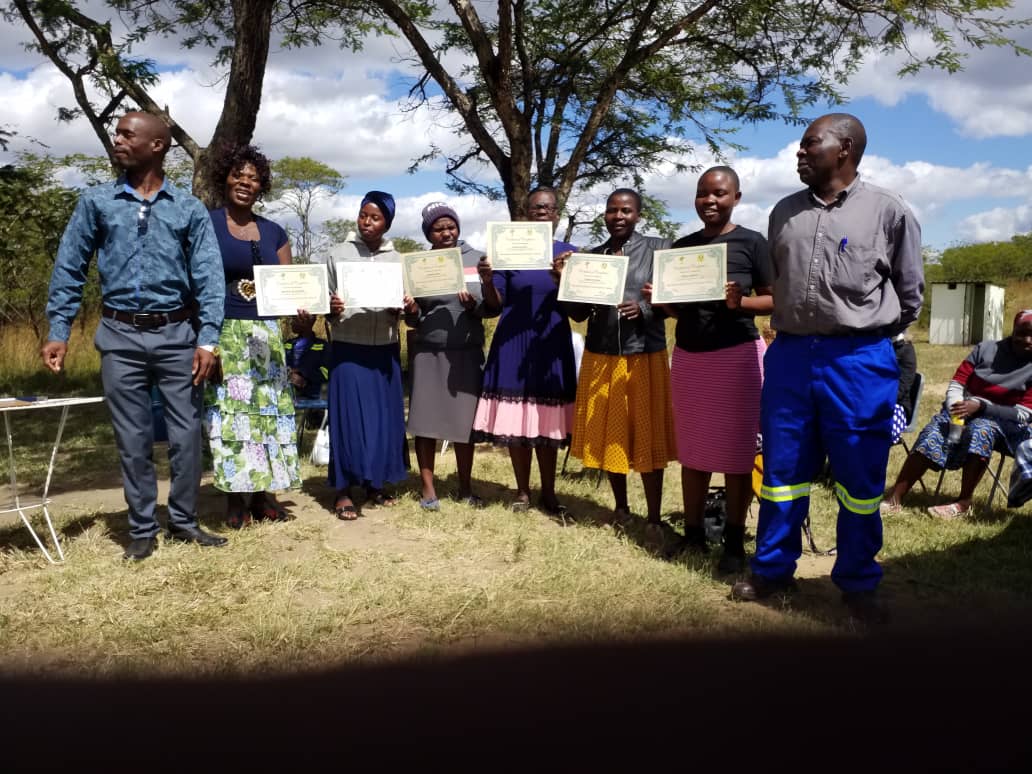Working For Bees
Bee Farming

ABOUT US
Community honey collection centers
We believe in making clusters and honey collection hubs where honey collection can be easily and cheaply coordinated. The collection centers are easily accessible by beekeepers.
Farm visit
We value visits to the farm where beekeeping is taking place. Beekeeping is done in several apiaries using different types of hives. Visitors come and learn about beekeeping at the farm. We have been receiving several visitors from different places around Zimbabwe
Tree planting
We value tree planting since one cannot separate bees from trees. The two are inseparable. The planting of trees supports our afforestation programs that addresses issues related to land restoration, bee habitat establishment, bee nectar sources, conservation, human nutrition from fruits and seed and human health. The trees that are chosen are those that give communities multiple benefits.
Several trees have been cut indiscriminately for various uses, tobacco curing, brick molding land for agriculture and charcoal making. This has left several areas in communities without trees. Tree planting will address the situation where trees have been cut indiscriminately and forest loss has continued to move at an increasing rate.
Community training.
We value training communities in beekeeping especially those in rural areas where people are exposed to serious shocks and vulnerable situations. We train communities in beekeeping and tree growing which help them to be more resilient as they are faced with the impact of Climate Change that increases the vulnerability of communities.
Honey products
We have two major bee products that we harvest, and these are bees wax and honey. Beeswax is value added to produce floor polish, shoe polish, body cream and candles whilst honey is used to make honey orange juice, honey wine, nuts in honey, honey biltong, biscuits with ginger and coated with honey, All the products have a ready market locally.
Customers
Our customers are our kings and always have an ear closer to them. We respect feedback from the customers and reach out to them with promotional initiatives so that we continuously build a close relationship. Our customers come as individuals, hotels, pharmacies, NGOs and private organisations.
Beehives
We use several types of hives to keep bees and have never been hive-centric. Each hive has different advantages and disadvantages, and this is always associated with several determinants to choose the best for the area and people in that area. Low-cost beehives have dominated the rural development sphere because they can easily be made using locally available material. Material to construct bee hives differ by location and can be easily accessed. In our apiaries we have both fixed and movable comb hives. The following types are available in our apiaries; clay, bark, log, basket and timber (Kenyan top Bar hive and Langstroth hives). Honey quality does not depend on the type of hive used. Our honey handling procedures from the hive after harvesting to the shop shelf contribute to honey contamination activities.
1 How can I start bee farming?
Have interest in working with nature
Receive adequate training on hive making using locally available material and beekeeping systems
Once hives are constructed one must set the hives out there in the forest
Have an area to hang the bee hives
Consider factors that are necessary for apiary selection
You need simple bee equipment and Protective gear.
2. Which areas are suitable for hive setting?
Consider areas
That are not exposed to heavy winds
That have adequate nectar source
That are close to a water source
That are a distance from where people stay
That are free from vandalism
That receive at least sunshine for the greater part of the day
That are not damp and always have high humidity
3. Is beekeeping something to be engaged into?
YES
Beekeeping is beneficial to the bee and the human being
Human beings benefit on the sale of bee products
Beekeeping is a conservation initiative where one looks after the forest and habitats
It creates employment for the people. It is inclusive with low startup costs. This resonates with Nature-based Beekeeping approach
One can earn a resilient income from the venture
It enhances crop pollination thereby improving seed size, quality and yield.
Honey obtained is food and medicinal.
An initiative that brings people to work together in groups, clusters and associations whilst helping one another to learn best practices for it to be sustainable.
4. Partners
The following are our partners.
Bees for Development
We have also worked with the following
-FACT-Family Aids Caring Trust
-Rujeko home based care
-Africa Ahead
-Mutare Board and paper mills
-Makoni Rural District Council
-Forestry Commission of Zimbabwe
-Universities-Africa University and Manicaland state University for Applied Sciences
-Vocational training centers- Magamba Vocational training center
-Christian Outreach World Africa
-Several farm owners ( Landos Farm, Falsbery farm, Rockstone farm, Adventureland farm, Divose farm)
